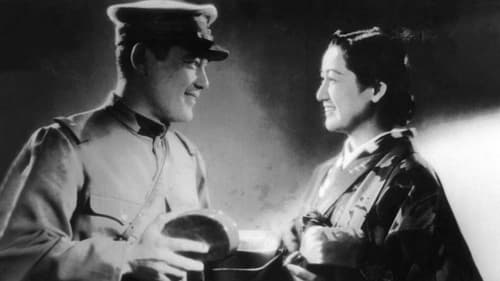
Dancer
Describes the oppressed life of the crab fishermen and their final revolt which is bloodily suppressed by the Royal Navy. (Set in the 1920's)

A romantic melodrama about the shifting relationship between Ryosuke and Miki as their precarious employment and social circumstances shift around them.

Police detective Heiji is assigned to catch the masked Maboroshi gang of robbers who have terrorized all of Edo leaving few clues as to who their leader is.

Aiko

Chiyoko
A 1943 film.

In this semi-documentary, an older locomotive driver is tasked with training younger ones and is currently training two in particular. The old man is finding the task overwhelming as it is hard work with practical lessons and classroom components. His wife has died, but he has three daughters with the oldest taking care of her younger siblings.

Yukiko, Jiro's daughter
Hideko, a young Baseball fan, determined to cheer for her favourite baseball team by creating a new song for them.

Enoken's anachronistic take on the beloved (and already very funny) Edo-period novel "Shank's Mare," aka Tōkaidōchū Hizakurige, in which Yaji and Kita, two plebeian nobodies, have all sorts of strange and colorful encounters on the long road from Edo to Kyoto.

The Old Man of the Propeller can be seen as a comedic amalgam of “King Lear” and “Christmas Carol”. A neighborhood loan shark is hounded by his relatives expecting big inheritance. But he is not giving any favor to anyone. His only joy of life is to go on junk hunt in the neighborhood, collecting garbages and scraps and selling them to junkmen to make profit.

This is the only surviving “Mito Komon Manyu-ki” film. This release also known as "Adrift Tour Memoir" or literally "Mito Komon's Pleasure Trip" is an 80-minute compilation of the first (東海道の巻 or "Tokaido no maki") and second (日本晴れの巻 or "Japan's Fine Weather Reel") parts (147 minutes), which were re-edited and screened at a time when presentable films were dried up immediately after the defeat of the war.

The film centres around junior high school students. They are members of the school's baseball team. They are very good. Izawa's father asks him to stop playing prior to an important game. Hayasaki health deteriorates at this time and he becomes absent. The team decides to speak to Izawa's father to plead their case and ask for the return of their team member.








